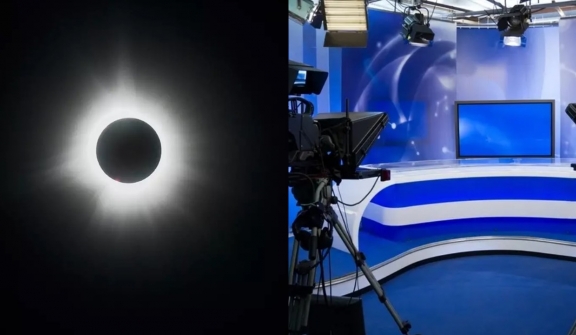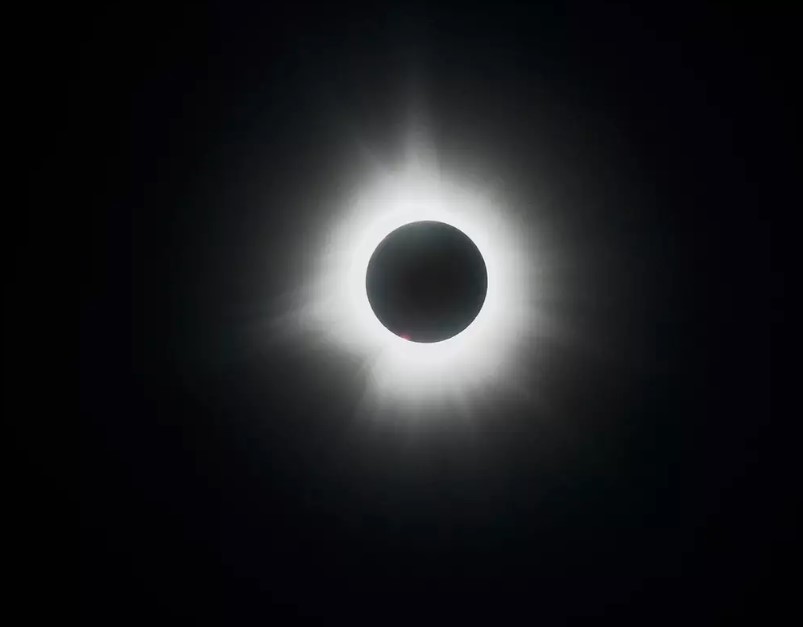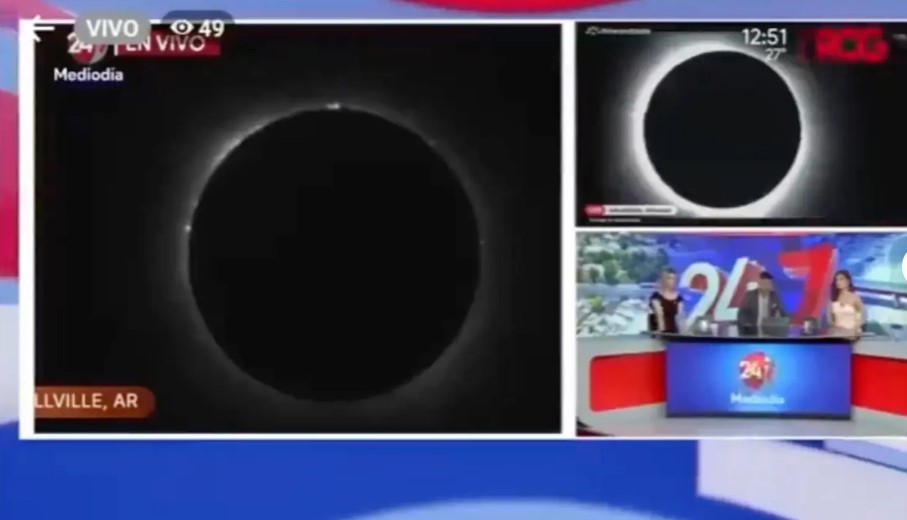
During a recent celestial phenomenon, a news station accidentally broadcasted footage of a man's private part instead of the highly anticipated solar eclipse.
The incident took viewers by surprise and quickly gained attention on social media.

During the coverage of the total solar eclipse on April 8, RCG Media experienced an embarrassing incident that they may not ever forget.
Similar to numerous other news stations, the broadcasting network was airing the celestial phenomenon, emphasizing the significance of avoiding direct eye contact with the Sun to safeguard viewers' vision.

According to reports, the path of totality began from the Pacific Ocean, extended to Mexico, continued northeast across the United States, and concluded in the North Atlantic after passing through Canada.
As a result, the news station in Mexico was well-prepared since the country was among the first to witness this extraordinary event.
However, it turned out that viewers had to witness an entirely unexpected case.

As part of their coverage, RCG media had requested viewers to submit their recorded videos of the solar eclipse.
Unfortunately, in a regrettable mistake during the live TV, the station accidentally aired a video featuring a pair of testicles of a man instead of the captivating eclipse footage.
This embarrassing mistake caused an unexpected and awkward moment for the hosts and viewers.

The show's producers quickly switched away from the inappropriate clip, but the moment soon went viral on social media.
While some viewers expressed understanding, referring to it as a simple mistake that could happen to anyone, others couldn't resist making puns and jokes about the incident.

Actually, this was an ill-fated attempt to moon the TV audience, one user suggested.
The Ancient Greeks once had the great warriors, Diomedes and Achilles, whereas contemporary Mexico has the twins Bophades and Testiclees, the second user joked.
I guess it was better than seeing his black hole, the third user shared.
A brand new scientific category. There’s lunar, solar, and now testicular, another commented.

As of now, there has been no official statement from RCG Media regarding the incident. Nevertheless, it serves as a cautionary tale for broadcasters.
Total solar eclipses are not very common and usually happen about every 18 months.
To truly appreciate the entire event, you need to be in the path of totality, where everything lines up perfectly. This creates a truly stunning sight that captures people's awe and wonder.




